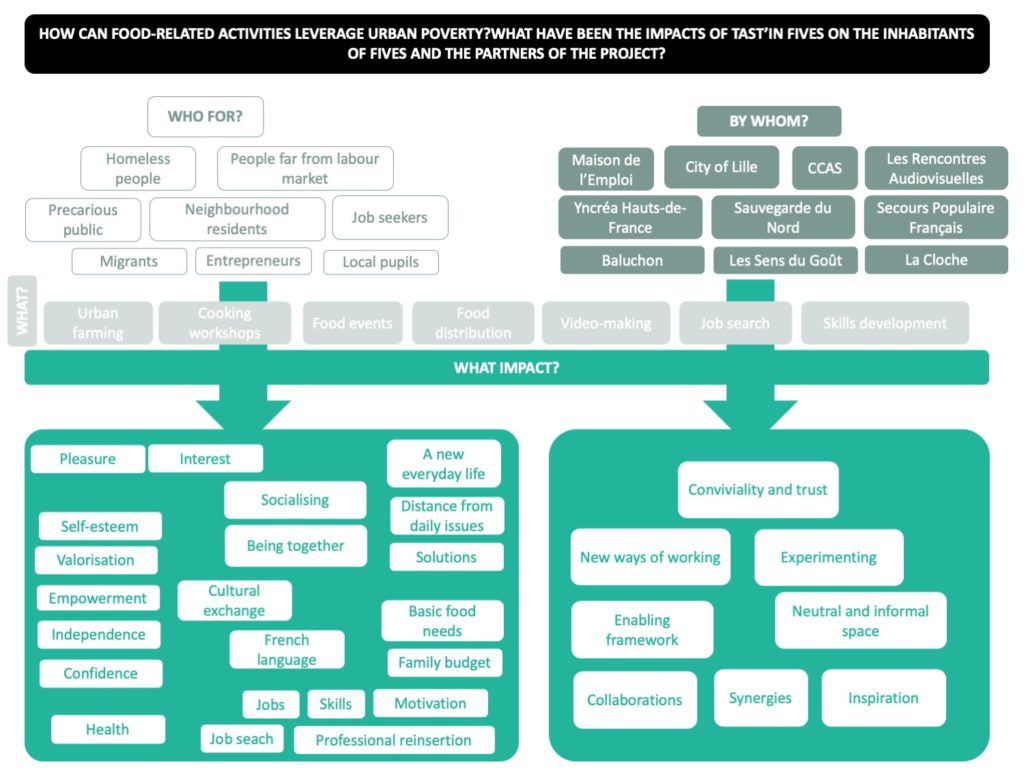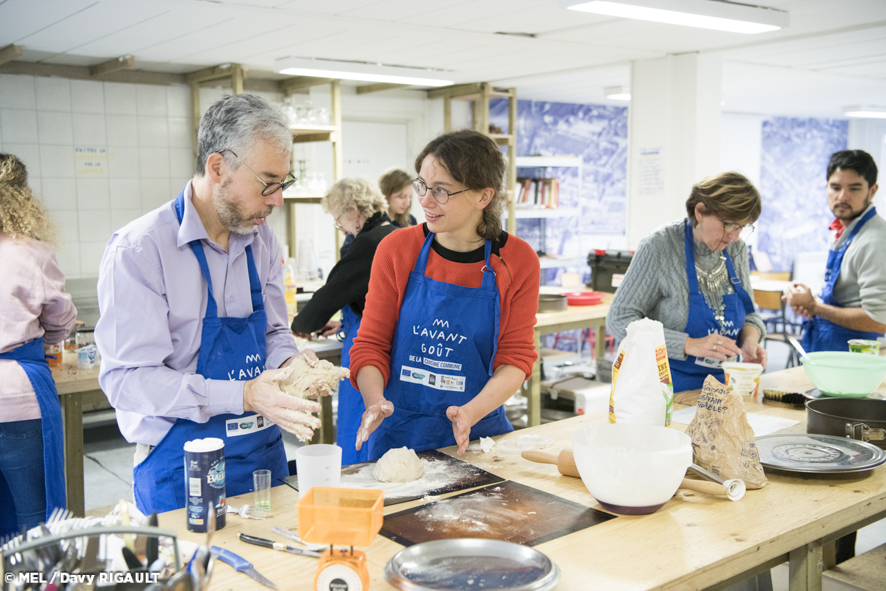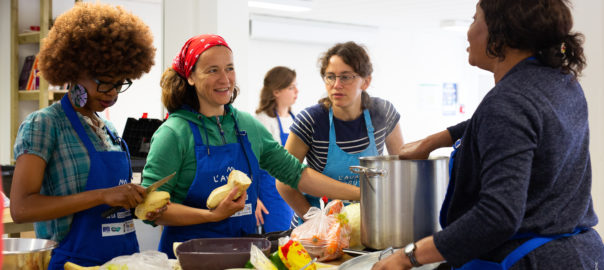This Zoom-In presents an infographic of the analysis contained in the article Food-related activities as a leverage against urban poverty. It is based on interviews with the UIA TAST’in FIVES project partners and seeks to present in a concise and communicative ways the learnings of the TAST’in FIVES project on the impact the use of food as a concept and a tool has benefitted on the one hand the beneficiaries of the activities, on the other, the organisers of these activities.
Some of the most prominent impacts presented in this graphic are detailed here, whereas further details can be found in the above-mentionned article.

Impact of activities on beneficiaries
Pleasure and interest have stemmed for those cooking for others or themselves and others as well as eating (as a basic need) or eating nicely cooked dishes.
A new everyday life has happened in a physical space (L’Avant-goût) where beneficiaries can attend workshops to meet and exchange with others, without any commitment, regularly if they wished, with the option to remain in contact outside this frame, but with no obligation.
Moving away from daily issues has been possible while providing a meeting and socialising space other than their home.
Self-esteem and valorisation occur during cooking and job search activities where applicants were observed during some cooking activities to showcase their skills to potential employers and recruitment agencies.
Socialising and being together has been the direct outcome of all the activities.
Cultural encounters have been the by-product of beneficiaries, getting to know each other’s cultures in this location outside of the kitchens many share on a daily basis with other families – with whom daily housekeeping and usage provoke tensions.
Job search has been supported by job matchmaking, coaching meetings and thematic training sessions for those wishing to set up a food, redirections to the incubator to create their professional activity in the food sector, leading to some job creation.
Health issues have been addressed indirectly by the mere fact of cooking (instead of buying processed food) and some general tips about “lighter food”, as well as by going back to the roots of food, i.e. food production.
Family budgeting has been solutioned by finding the right balance between healthy and cheap products, reducing food waste, making the most out of existing products, during workshops.
Impact of activities on organisations
Conviviality and trust with the organization has stemmed from the use of food to mobilise people.
New ways of working have been tested by the organisations while using a new space for carrying out activities and using food as an entry point to address a wide array of issues, as well as giving the opportunity organisations to look at their beneficiaries in a new light.
The enabling framework has let the beneficiaries meeting and exchanging in an organic way.
Synergies have been found with other tools which can support the development of a realm of skills and attitudes, such as photo, cinema or culture.
The space provided has been more neutral and informal, enabling it to reinforce supporting and educative measures in a new territory.
Inspiration have been shared with colleagues from other departments, working and experimenting outside the strict institutional framework, to promote proximity link at the same time as putting themselves at the same level as their beneficiaries.

The author would like to thank the partners for their inputs and reviews: Antoine Plane et Cécilie Dagmey (Ville de Lille), Hervé Chattuais (Maison de l’Emploi), Christophe Lethureau et Margaux Helfer (CCAS), Elodie Tison, Antoine Manier and Mélanie Longeau (Les Rencontres Audiovisuelles), Alix Requillart (Yncréa Hauts-de-France), Julia Wouters and Camille Mathis, (Sauvegarde du Nord), Alix Videau (Secours Populaire Français), Mathilde Brique and Gaëlle Werkling (Baluchon), Hervé Hazard, Marion Subtil and Marion Evrad (Les Sens du Goût), and Martin Van Ecke (la Cloche).
The content of this Zoom-in does not reflect the official opinion of the Urban Innovative Actions Initiative. Responsibility for the information and views expressed in the Zoom-in lies entirely with the author.

